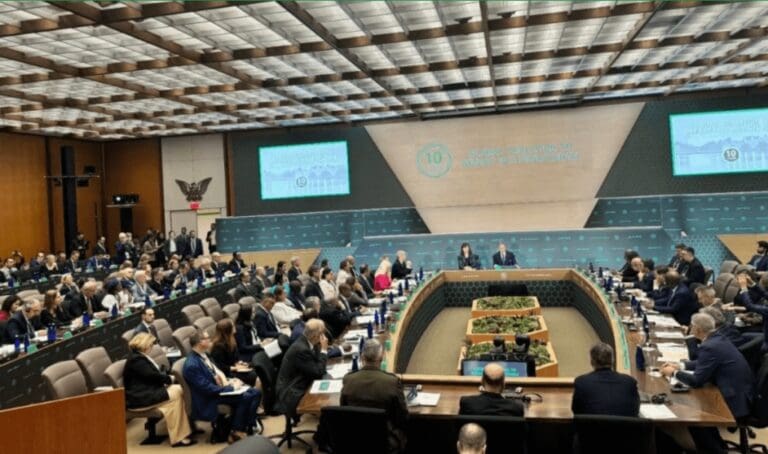Morocco’s House of Representatives has unanimously approved 27 international agreements, reinforcing the country’s strategic approach to diplomacy.
Foreign Minister Nasser Bourita emphasized that Morocco prioritizes meaningful partnerships aligned with long-term objectives rather than simply multiplying agreements.
Speaking during the legislative session, Bourita underscored that these agreements align with Morocco’s international commitments and the vision of King Mohammed VI to strengthen cooperation and strategic
partnerships.
He highlighted that Morocco’s foreign policy is pragmatic, ensuring that each agreement serves a clear purpose and fits into a broader long-term strategy.
Of the 27 agreements approved, 12 were signed with African nations, reflecting Morocco’s prioritization of African partnerships. These cover key areas such as judicial cooperation, customs, taxation and economic development.
Nearly half of the agreements focus on economic issues, supporting Morocco’s strategy of leveraging diplomacy to drive economic growth both domestically and internationally.
Bourita also highlighted the significance of Morocco’s southern provinces in its international diplomacy. He disclosed that 11 of the 19 bilateral agreements were signed in the southern regions, particularly in Dakhla, reinforcing their role as hubs for international meetings and diplomatic activities.
Several agreements, particularly those related to land transport, further solidify Morocco’s sovereignty over the Sahara, emphasizing the strategic role of the Guerguerat border post as a gateway to Africa.
The 19 bilateral agreements fall into four main categories: economic development: investment promotion agreements with Cape Verde and Sierra Leone, customs cooperation with Burkina Faso and The Gambia,
and a tax treaty with Cape Verde.
Transport: road transport agreements with Guinea and The Gambia, maritime cooperation with Oman, air transport agreements with Cambodia, and mutual recognition of driver’s licenses with Italy and Spain. Sectoral cooperation: fisheries agreements with The Gambia, military cooperation with Romania, and civil protection collaboration with Burkina Faso. Judicial Assistance: extradition treaties with Sierra Leone and the Netherlands, a prisoner transfer agreement with Burkina Faso, and legal cooperation with
Sierra Leone.
Additionally, Morocco approved eight multilateral agreements covering institutional matters, including the establishment of an African Development Institute headquarters in Dakhla and an organization facilitating digital cooperation.
Other agreements address legal harmonization in maritime biodiversity protection, aviation security and labour law.
By adopting these agreements, Morocco continues to reinforce its diplomatic influence and economic integration, positioning itself as a key player in regional and international cooperation.
MK/te/sf/lb/gik/APA


